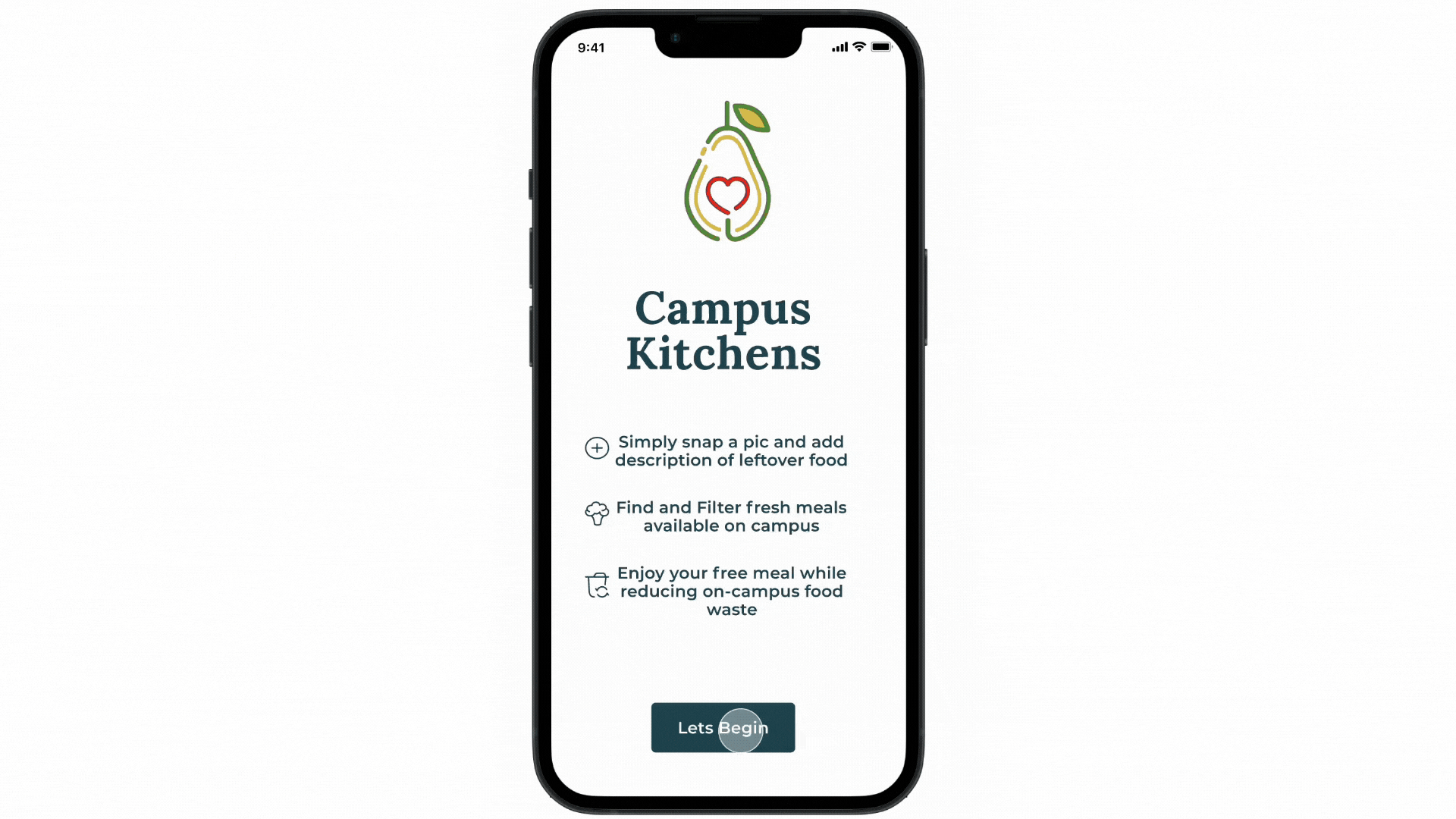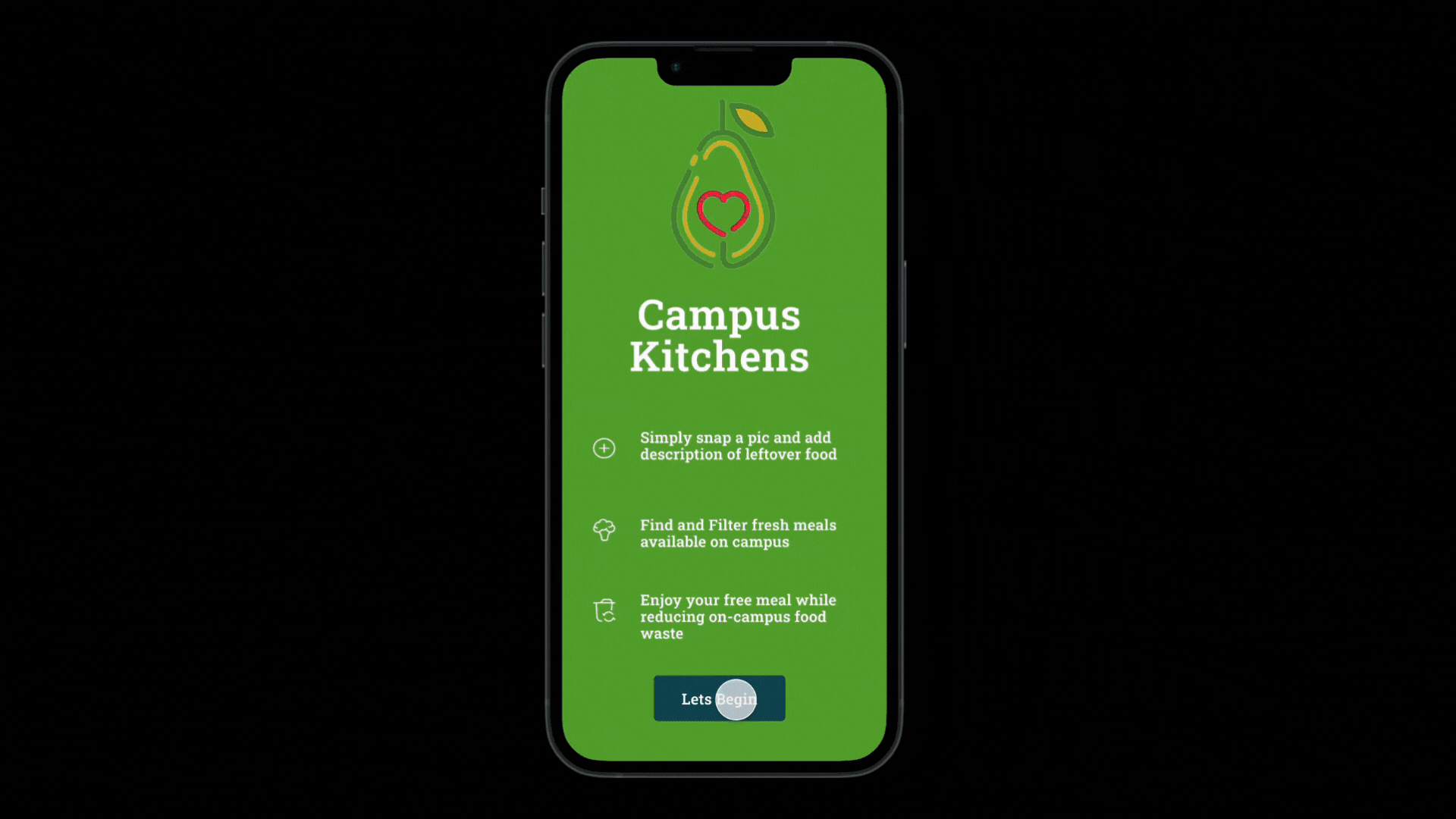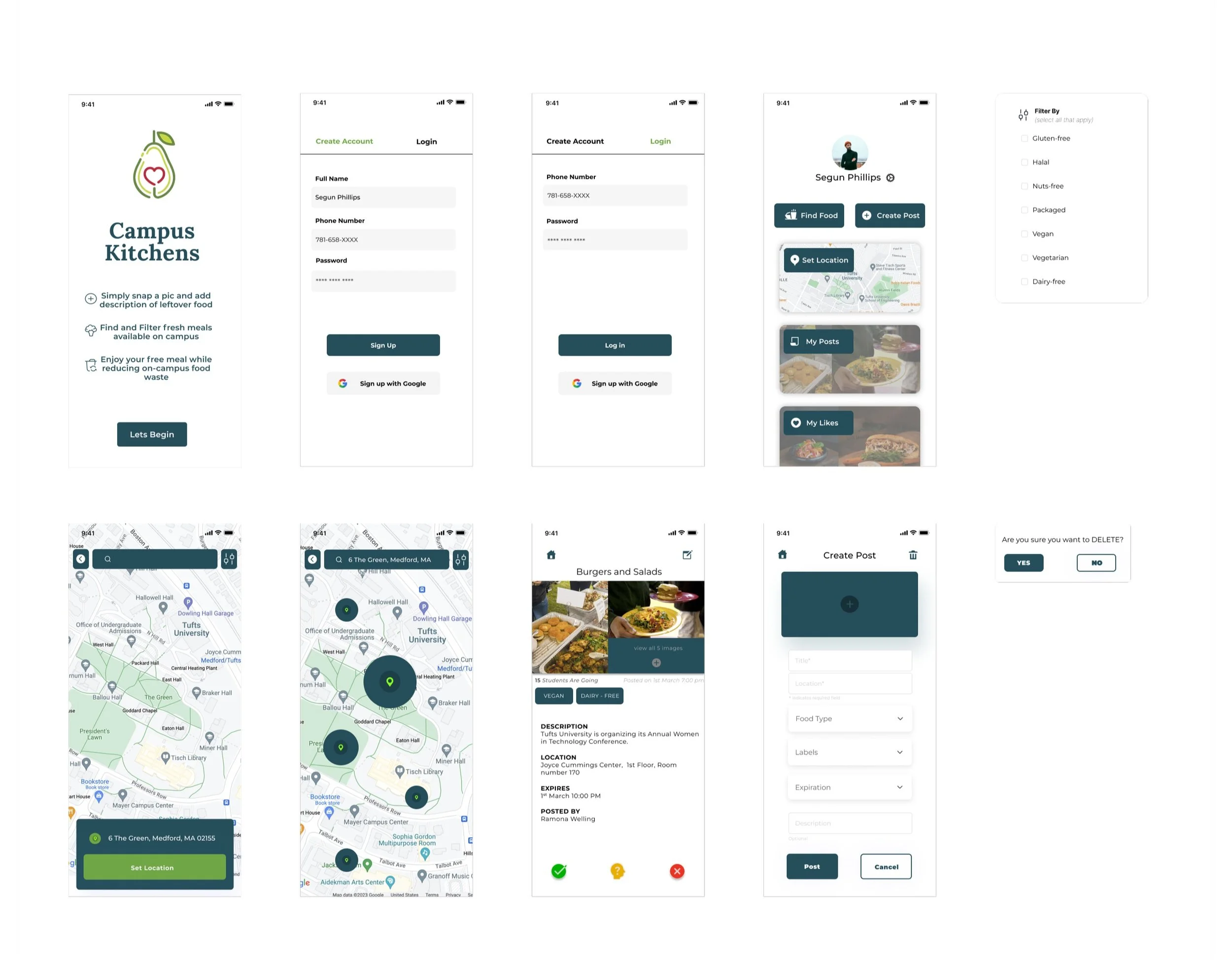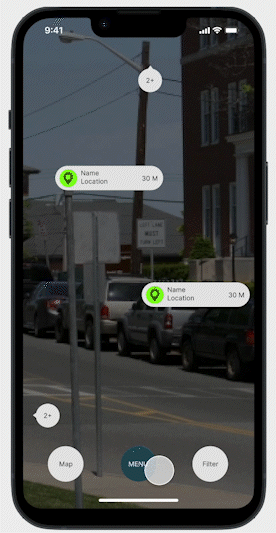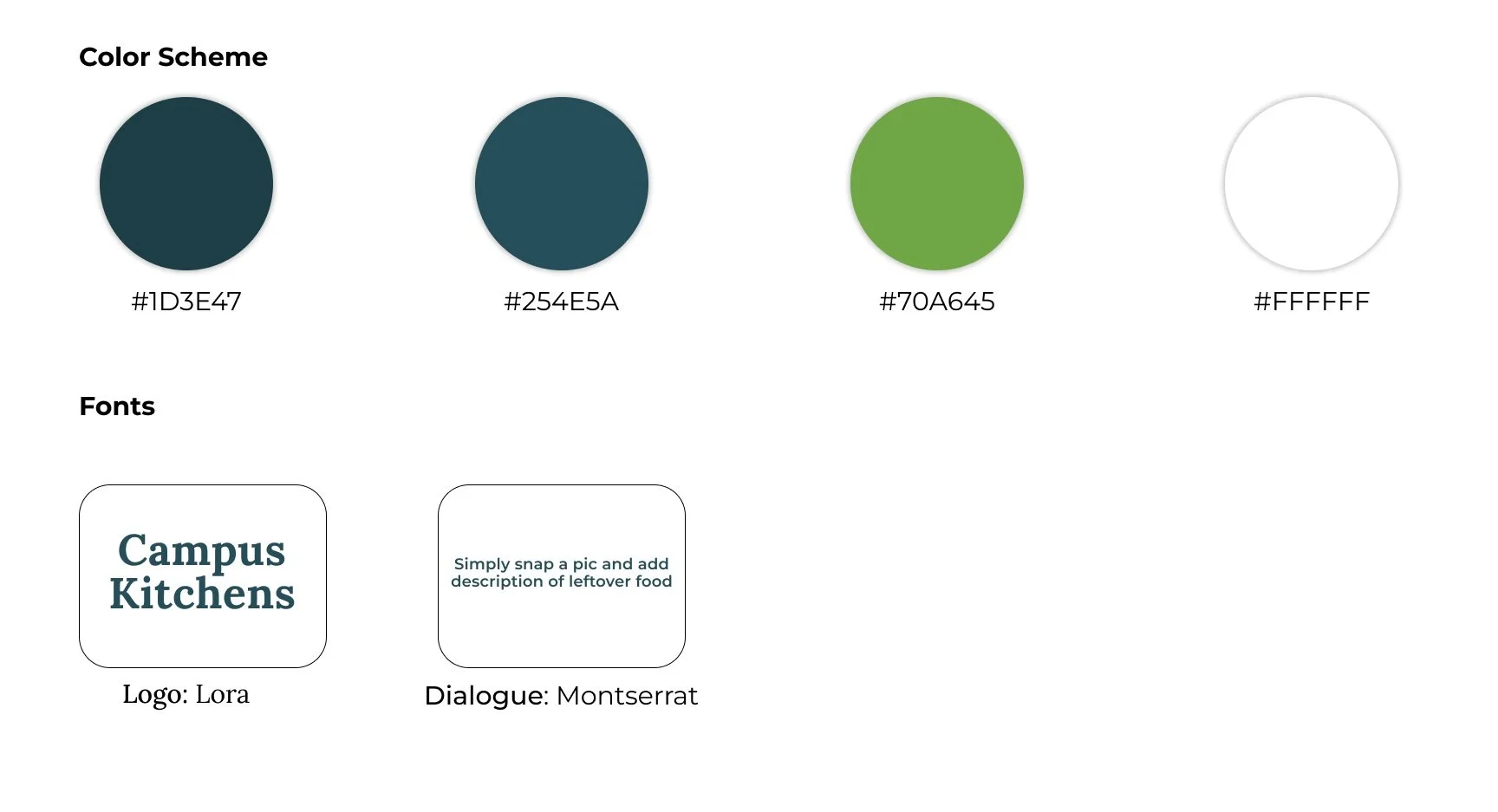
Campus Kitchens
A convenient way to find leftover food on campus
Duration
Spring 2023
4 months
Tools
Figma
Photoshop
Key Skills
User Research
Wire framing
Prototyping
The Team
Undergrad/Grad students in computer science, engineering psychology, and data science.
Project Overview
Campus Kitchens is an application which allows users to conveniently find leftover foods all over campus to help reduce food waste and help students navigate rising meal costs.
Problem Discovery
Events held on campus typically serve food and often waste a lot of it after them not being consumed.
Some staff may email a small group of students about these foods or leave these leftovers in building hallways, however, this often leads to unfound food left out to spoil as students never end up finding them.
We created a tool that allows users to easily share information about leftover foods on campus, with sortable and filterable details like location of the food, category, allergy info, etc. Our grand goal is to help users find food while reducing food waste created on college campuses.
Identifying Potential Users
Anyone with leftover food
Students on a budget
University/organizations/clubs - who organize many events and want to reduce waste
Professors who are in the school building all day and are unable to step out to buy lunch
Defining the Solution
An efficient way to find leftover food on campus to reduce food waste and feed hungry students
MVP Requirements
Add information about food - Users should be able to easily add information about leftover food from events. They should add a description, location, picture of the food.
Food visible on map - Once information added, the event should be visible to all signed up student users.
Filters - users should be able to sort and filter food.
Notifications - Nearby users should get notifications about added events.
Auto-delete posts once a certain amount of time has passed so no one eats expired food.
Usability Analysis
Board meetings or School events that end event with leftover food
These events usually serve catered food. Event organizers are usually in charge of leftover food. The event organizers can add pictures and location of leftover food from events. Once added, the event organizers do not have to worry about managing leftover food.
Students who are on campus and need a quick meal
These students usually have limited options on campus to find fresh cooked food. Dining halls have fixed hours, while restaurants tend to be out of budget for students and require transportation. This is a no-cost, easy to get meal.
Waste conscious and sustainable students on campus
Students who live on campus are usually on a fixed meal plan which is susceptible to running out. They can use this tool to find available food options on campus and help reduce food waste.
Paper Prototype
We mapped out our first user flow using post-its and drawings in order to visualize our process.
Rapid Prototyping
Our initial iteration was a solution we drew based on the problem we defined. We had not conducted any real world testing or interviews at this point.
Pilot Study
Overview
We conducted a pilot study to really understand how the solution impacts the users and whether it is actually useful to them. The task assigned to the user is to clicks on the ‘Find Food’ option on the prototype to find posts near his location.
Test Subject
We recruited a participant for the study from Tufts.
Observations
The pins on the map were confusing
Users were not sure what to do
Not sure why need to set own location
The pins for our own location looked the same as the food pin.
The user didn’t realize they should click on the pins after they set their location
Observing Emotions
This process allowed us to identify where the user faced the most difficulty
This allowed us to identify where we needed to consider areas of importance
Post-task Questionnaire:
Would you use this app instead of other forms like email lists?
“Yes, they have signed up for free food email lists before and those always felt sketchy and they are usually from far away.”
Please provide an overall rating for the experience of the app:
“I would rate it a 3.8 for ease of use”
Test Takeaways
From the in class pilot study, we realized that users found it confusing to adjust the pin because they found it unnecessary. Our intention was to make the process of viewing posts nearby more intuitive.
Secondly, the users were confused about which pin to click on. The pin for user location and the pin to indicate food location looked the same.
A “nice to have” feature would be the ability to view how many people are interested in picking up food from a certain event so that users could estimate the amount of food left.
User Flow Diagram
Final Screens
Iterations
With the feedback we received from the pilot study, we iterate the way users would choose their location.
We improved the UI of the profile to increase user satisfaction.
Users are given the ability to undo or delete actions.
Future Iterations
Provide directions to the location of food
Ability for the user to navigate to the location of the food.
The user will be notified if food runs out while they are on the way to pick it up.
User does not have to leave the app after they decide to pick up the food

